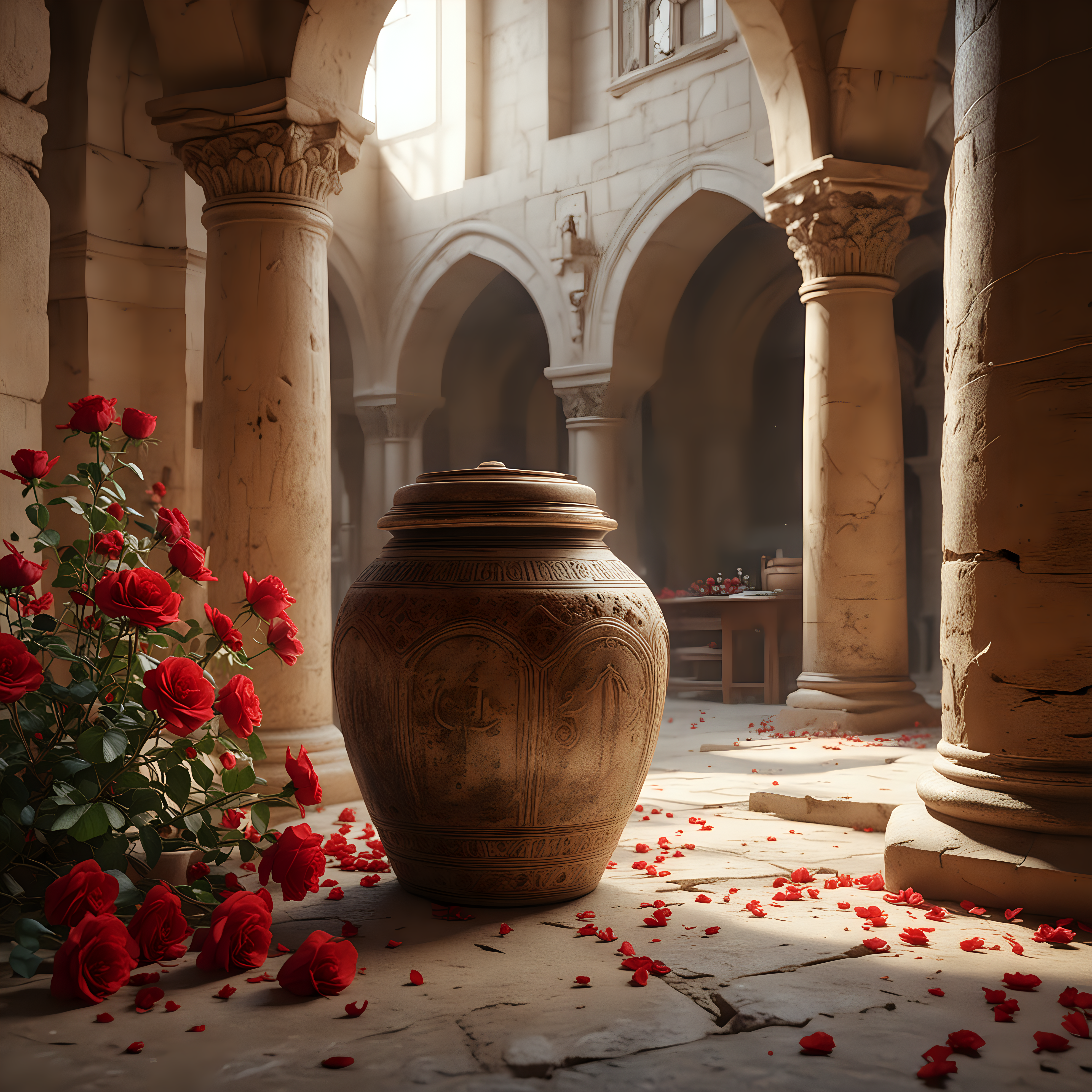We’ve reached the eighth and final Beatitude in our series! The Beatitudes present us with a series of counterintuitive statements to reflect on. But perhaps none is so counterintuitive as this one. The final Beatitude presents a paradox that challenges our conventional understanding of what a blessing is. It says, “Blessed are those who are persecuted for righteousness’ sake, for theirs is the kingdom of heaven.”
This Beatitude confronts us with the reality that standing up for truth and justice can lead to persecution. Yet, it also reassures us that such sacrifices are not in vain. This Beatitude invites us to reflect deeply on our commitment to our values and the depth of our convictions. It asks us to consider what we are willing to endure for the sake of righteousness and assures us that our efforts are more valuable than we can possibly imagine.
This is the ninth and final post in a series on The Beatitudes, 8 keys to happiness that Jesus gifted to the world in his Sermon on the Mount. This series is meant to be read in order, so if you have not read the first eight, I suggest you do so and then circle back to this one.
In this post, I’ll be reinforcing many of the lessons we’ve covered in the previous posts on the Beatitudes by:
- Reiterating why the Beatitudes are so counterintuitive and yet utterly true
- Explaining how each of the Beatitudes build upon one another, culminating in the eighth and final one
- Presenting St. Maximillian Kolbe as an exemplar for carrying out this most difficult Beatitude
- Encouraging you to take what you’ve learned from the Beatitudes into your life and embrace happiness
The Counterintuitive Statements Of The Beatitudes

If you’ve been following along with our series, you’ve undoubtedly noticed the deeply counterintuitive nature of the Beatitudes. These teachings are rich in uncommon wisdom.
They beckon us to see beyond the immediate struggles and find the hidden treasures of joy and fulfillment that hardship can reveal.
This final Beatitude is no exception. The fourth Beatitude asks us to endure the frustrations of hungering for righteousness. Once we find a way to actualize that righteousness, we are blessed because we feel filled. But now we’re being told that, once we reach that mountaintop, the true struggle has only just begun. Now we must reckon with persecution. And we are asked to do so while holding onto faith that persecution will lead to the kingdom of heaven.
This idea, although counterintuitive, underscores a profound truth. Your commitment to these principles, no matter the opposition, is what lays the foundation for a heaven-like experience on earth, both for you and for those around you. This goes for ALL of the Beatitudes, but especially the eighth and final one.
Blessed Are The Persecuted
“Blessed are those who are persecuted for the sake of righteousness, for theirs is the kingdom of heaven.”
In the last couple of posts, we saw how the first five Beatitudes prepare you for the sixth, and the first six Beatitudes prepare you for the seventh. The same holds true here.
To endure persecution for the sake of righteousness demands a strong foundation rooted in the infancy of a poorness of spirit. This is the first Beatitude. It also requires an ability to healthily deal with difficult feelings like grief and suffering (your own and that of others)—the second Beatitude. This is where the hunger for righteousness from the fourth Beatitude comes from. You are driven to help others in need because you intimately understand grief, mourning, loss, and suffering, and you want to help as many people as possible get through those tough times.
To embrace the eighth Beatitude, you also must cultivate the right character traits. The meekness of the third Beatitude and the mercy of the fifth Beatitude will allow you to show restraint and accept your persecution without retaliation, not from a place of weakness but from a place of strength that inspires others. The purity of heart from the sixth Beatitude is a reservoir of that strength—a single-minded focus on Divine Love. And finally, the seventh Beatitude will remind you that making peace requires persistence and the knowledge that you and everyone else are interconnected as children of God.
Enduring All Forms Of Persecution
Persecution and hardship in this case isn’t always something as extreme as torture and martyrdom. You can put the eighth Beatitude into practice even in the midst of more modest forms of persecution.
You’re with a group of friends having a good time. They start saying a bunch of cruel things behind someone’s back. For the sake of righteousness, you speak up to defend that person and, in a kind manner, urge them to stop talking like that. You might face a bit of persecution as the people you’re with bite back at you a bit. “Why are you being so sensitive?” “We’re just having a bit of fun—why are you trying to ruin that?”
In these moments, you have to rise against peer pressure. Resist that urge to back down because you don’t want to be known as the party pooper. In some cases, you might even find yourself breaking off relationships with people who you thought were your friends.
None of this is pleasant in the moment, but when you endure all of this, maintaining the values of your inner compass above all else, you will find internal peace—the kingdom of heaven—because you know that nothing can shake you from your foundation of groundedness in the Divine. The promise of the kingdom of heaven is not a distant, abstract concept. it is a present and living reality for those who endure hardship to do what is right.
The Story of St. Maximilian Kolbe
I point all this out so that, as you read through the rest of this post, which tells the story of St. Maximillian Kolbe, you don’t feel completely deflated, thinking, “Oh, I thought my actions of enduring persecution were noble and brave, but it’s really insignificant compared to someone Maximillian.”
Not true! It’s not a contest. We are all tested with varying degrees of hardship in our lives. Maximillian did not ask for the persecution that came his way. What’s important is that, once it did come his way, he faced it unwaveringly. If you do the same, it doesn’t matter how severe or mild the persecution is. The important thing is how well you respond in those situations, and what that reveals about your spiritual maturity.
So, without further ado, I introduce you to St. Maximilian Kolbe. He was born in 1894 in Poland to a very spiritual family. His parents were both Third Order Franciscans, which is the same order that I belong to. So, I can speak to the spiritual values Maximilian would have been raised to believe: to strive for kindness, contribution, and compassion for others.
It’s very hard not to let the spirit of evil corrupt you when you are being persecuted. It’s imperative not simply to survive but to emerge without letting the ordeal corrupt you into bitterness. This is the challenge Maximilian faced. It was a call to rise above the darkness, to remain unstained by the evil inflicted upon him. Thankfully, Maximilian was a remarkably spiritual man. When he saw someone struggling, he would say, “Offer your pain to Mary. She will make use of this.”
Vision From The Mother Mary Statue
When Maximilian was a child, he was driving his mother up the wall one day, as children do, and she said to him, “Oh, my sweet boy, what’s going to become of you?”
She meant well, but as a little child, this kind of struck Maximilian in his heart, and he immediately went over to the parish church across the street.
There, he knelt before a statue of Mother Mary and asked, “Well, Mother Mary, what will become of me?” In that profound moment of youthful curiosity, Maximilian was enveloped in a vision that would forever shape his destiny.

There, before him, stood Mother Mary, her form radiating with an ineffable grace and warmth. She smiled at him and extended her hands in which she held two crowns. “My son,” she said, “the red crown brings martyrdom and sainthood, and the white crown offers purity and devotion to God. Which do you choose?” Without hesitation, embodying the fearless spirit that would characterize his life, Maximilian says, “I choose both!” Mary’s smile broadened, a silent acknowledgment of the profound and heroic journey that lay ahead…then she vanished. This decision, made in the innocence of childhood, would echo throughout his life, guiding his actions and choices.
The Counterintuitive Location Of Heaven
There’s much more to Maximillian’s story that’s worth learning. But for the sake of focusing on our main topic, I want to get right into his trial of persecution—namely, his time as a prisoner in Auschwitz.
Auschwitz was probably the most sinister place ever designed, created not just to kill the body but also to extinguish hope and crush the soul. But whenever he had a moment of rest, Maximilian would pray with people and give them words of encouragement.
One day, the harsh reality of life in Auschwitz presented itself in the cruelest of rituals. The work crew returns to find that one of the prisoners is missing. There was a policy in the camp: for one escape, ten would pay with their lives. So, under the sweltering summer sun, the men of Maximilian’s block were forced to stand at attention for hours of dreadful anticipation until the camp commander finally began his grim selection, moving through the ranks with a chilling indifference.
But when he pointed at the tenth and final man who would be sentenced to die in the starvation bunker, Maximillian volunteered himself in place of that man, sealing his fate in a tremendous act of courageous righteousness.
Typically, prisoners would be able to hear the men in the starvation bunker crying, swearing, and cursing. Sometimes prisoners would try to eat other prisoners, driven by the primal instinct to survive at any cost.
But under his guidance, Maximilian led these nine other men to sing hymns. And now, instead of hearing the cries and shrieks of desperate prisoners, it was the chanting of cheerful hymns that could be heard. The starvation bunker became like a little chapel, a slice of the kingdom of heaven in the least likely place on Earth.
Choosing To Trust God
Maximilian had a saying, “If it’s not within your control, be assured it is the sure will of God.”
Anything that happens to you, if it’s outside of your control, it is part of the plan. Even the bad things. There’s a similar saying in the Jewish Talmud: “No one lifts a finger on earth unless it is so decreed in heaven.” When the Nazis came to take him away to the horrible concentration camp, Maximum said, “Ok, God, I will do this.” When it was his time to take the place of the other prisoner condemned to death, he saw in that situation an opportunity to carry out the will of God.
Suffering persecution for the sake of righteousness is your choice. It’s not an easy choice. It’s a choice that goes against our base instincts for power, status, wealth, and sometimes even survival. But if you make that choice, the kingdom of heaven, so to speak, is yours because you recognize that there is something more valuable than your own life, something that nobody can take away from you. You are filled with a force of Love for Life itself, a force so powerful that no earthly pleasure compares. Nothing compares.
You can see that in people who have made this discovery. They are happy through their suffering. People like Maximilian Kolbe. With his final breath in the starvation bunker, he held up his arm and said, “Yes God, thy will be done.” And because of that, he became not just a saint, but an inspiration for millions of people to strive for humility, selfless service and Trust in the way life unfolds.

Living Out The Beatitudes
The Beatitudes are at the core of mysticism and spirituality. They’re guiding principles that transcend religion and speak to the heart of our humanity. They’re not about following a set of rules or dogmas, but rather about finding happiness. True happiness. The kind of happiness that doesn’t depend on your circumstances. They shift your perspective, so you find meaning in unexpected places, even in the midst of difficulties.
Spirituality is who you are when nobody is watching you. Spirituality is the choices you make when there is no reward for you. It’s just you and God. It’s the unmediated connection you have to the greater meaning and purpose of your life. It’s how you answer those little tugs at your soul when God calls you to do something. You have to stay true to that deep knowing within you. You have to go out into the world and become the person you’re called to be.
Sometimes, that means doing seemingly impossible things to create peace. However, as the Baha’i leader Shoghi Effendi reassures us, “As we suffer these misfortunes, we must remember that the Prophets of God Themselves were not immune from these things which men suffer. They knew sorrow, illness and pain too. They rose above these things through their spirits, and that is what we must try and do too, when afflicted.”
My prayer for you is that, as you live these beatitudes in your life to the best of your ability, your eyes are open to the incredible rewards in the pursuit of peace. Yours is the kingdom of heaven, no matter your religion. Peace is yours. Love is yours. Hope is yours. Happiness is yours. The Universe is extending these gifts out to you. You simply have to open your heart to receive them.
Frequently Asked Questions
Counterintuitive means something that breaks the barriers of conventional wisdom and opens avenues for new understanding. For something to be counterintuitive, it either conflicts with our normal assumptions and expectations about how the world works or it reveal something about it that we have never thought of before. Counterintuitive thinking is a way of thinking that challenges the status quo and leads to the discovery of new perspectives. Jesus’ eighth Beatitude is perhaps the most counterintuitive of all because it puts forth the idea that persecution is a state of blessedness that puts us within closer reach of the kingdom of Heaven.
There are primarily 8 Beatitudes, which are presented in verses 3-10 of Matthew 5. Sometimes, Matthew 5:11 is viewed as a 9th Beatitude: “Blessed are you when people insult you, persecute you and falsely say all kinds of evil against you because of me.” However, the meaning of this statement is largely an extension or further explication of the eighth Beatitude, which underscores just how important the eighth Beatitude is.
The 8th Beatitude is so important because it is the final Beatitude. The first seven Beatitudes offer wisdom on how to persevere through times of hardship to develop certain character strengths and virtues which facilitate spiritual growth. All of those lessons and skills absorbed by following the advice of the first seven Beatitudes are necessary for confronting the most difficult and counterintuitive Beatitude, which is the eighth Beatitude. It is the most important because it is the final step toward attaining the kingdom of Heaven on Earth–the culmination of our process of spiritual growth.
Paragraph
Paragraph



